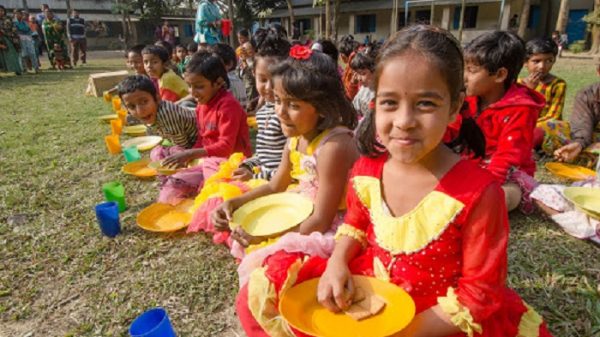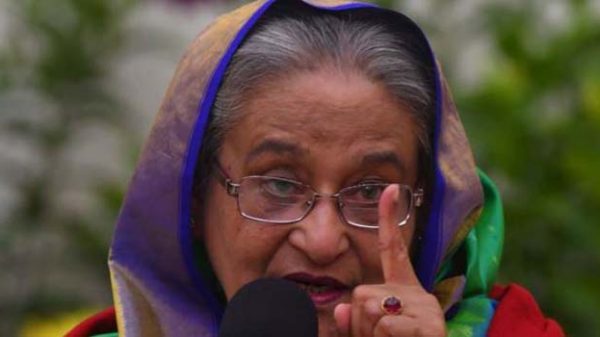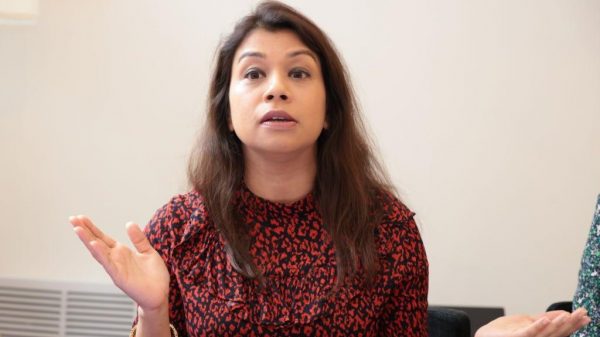Bangladesh sees sharp decline in child malnutrition: Survey

Bangladesh sees sharp decline in child malnutrition, while violent disciplining of children rises, new survey reveals
Bangladesh has made great strides in several areas related to health, nutrition, water, sanitation and hygiene, education, and child protection.
These findings of the Multiple Indicator Cluster Survey (MICS) 2019, conducted by the Bangladesh Bureau of Statistics (BBS) and UNICEF, were revealed on Monday.
One of the most positive developments was a sharp decline in chronic malnutrition as measured by stunting levels, which fell from 42 percent in 2013 to 28 percent in 2019. Figures also show that all child mortality rates (neonatal, post-neonatal, infant and under-five) have had a downward trend in Bangladesh over the last 30 years, the UNICEF in Dhaka said.
Other welcome findings include an increase in the availability of drinking water; better access to and use of toilets; an increase in the net attendance of children in primary and secondary schools; and an increase in birth registration, which ensures a child’s right to an identity. At the same time, more rapid “progress with quality” is required for Bangladesh to continue as a thriving middle-income country.
Issues such as the quality of education and drinking water, the battle against child marriage and violence against children continue to be highly prevalent protection issues. Violent disciplining of children also remains alarmingly high: Nine out of ten children under 15 are subjected to some form of violent disciplining by their parents or other caregivers.
A great deal has been achieved to improve children’s lives between the 2012-2013 MICS and the 2019 MICS. However, more needs to be done quickly if Bangladesh is to achieve its ambitious UN Sustainable Development Goals (SDGs) by 2030. For the 2019 MICS, data was collected between 19 January and 1 June 2019 from 61,242 randomly selected households. The report provides in-depth and statistically reliable data from across all 64 districts.
According to Saurendra Nath Chakrabharty, Secretary, Statistics and Informatics Division, “The new set of data available from this round of MICS continues to promote a data-driven public discourse and policy making for the betterment of the children in Bangladesh as a middle-income country.”
“The findings of MICS 2019 will help us identify those who are left behind in the country’s development process so that we can take action and reach the children whose needs are the greatest,” said Alain Balandi Domsam, Officer-in-Charge Representative, UNICEF Bangladesh.
It is critical to break gender stereotypes and transform social norms that perpetuate gender inequality, he said, adding, “Bangladesh cannot wait to invest in its children and youth if it is to reap the benefits of the demographic dividend. The country has only 11 years to go before this unique window of opportunity closes. It is essential to increase investment to strengthen systems and to build structures and capacities to accelerate the SDGs in Bangladesh.”
Major Findings of MICS 2019 at a Glance:
- The average household size is 4.3. About 35.6 per cent of the population are under the age of 18 (MICS, 2019). The Total fertility rate (2.3) and adolescent birth rate (83) remained the same over the past 5-years.
- The share of children who were ever breastfed is very high (98.5 per cent). However, the share of children who were breastfed within one hour of birth is still somewhat low (46.6 per cent).
- Moderate and severe underweight prevalence has dropped from 31.9 per cent in 2012-13 to 22.6 per cent in 2019. Similarly, moderate and severe stunting has gone down by significantly from 42 per cent in 2012-13 to 28 per cent in 2019.
- The share of children aged 36 to 59 months who attended early childhood education is small (18.9 per cent), with a slight increase from the 13.4 per cent registered 2012-13 (MICS).
- The net attendance rate in primary school is high at 85.9 per cent, somewhat higher compared to the previous MICS round (2012-13) where it was 73.2 per cent. Nevertheless, 13.1 per cent of adolescents are out of lower secondary school. The drop-out rate is particularly high among boys, where about one in five (18.1 per cent) children is out of lower secondary education.
- The proportion of children in Bangladesh under five years of age whose births are reported has risen sharply in recent years (56 per cent).
- Violent disciplining of children remains alarmingly high. 88.8 per cent of children aged 1-14 years have been subject to some form of violent disciplining by their caregivers.
- 6.8 per cent of children aged 5-17 are involved in child labour. It is higher among children not attending school (18.9 per cent) compared to those attending school (4.4 per cent).
- Child marriage remains widely accepted with 51.4 per cent of women aged 20-24 years first married before their 18th birthday, and 15.5 per cent of women first married before their 15th birthday.
- Almost all households (98.5 per cent) have an improved source of drinking water. The difference is small between rural and urban households. However, 43 per cent of the population lives in an area where there is an improved drinking water source located on the premises.
- About 84.6 per cent of households in Bangladesh have access to improved sanitation. In terms of hygiene practices, knowledge is high in Bangladesh, but the practice of handwashing at key moments remains very low.
- The share of children aged 2-17 years with functional difficulty in at least one identified domain is 7.3 per cent.

























Leave a Reply